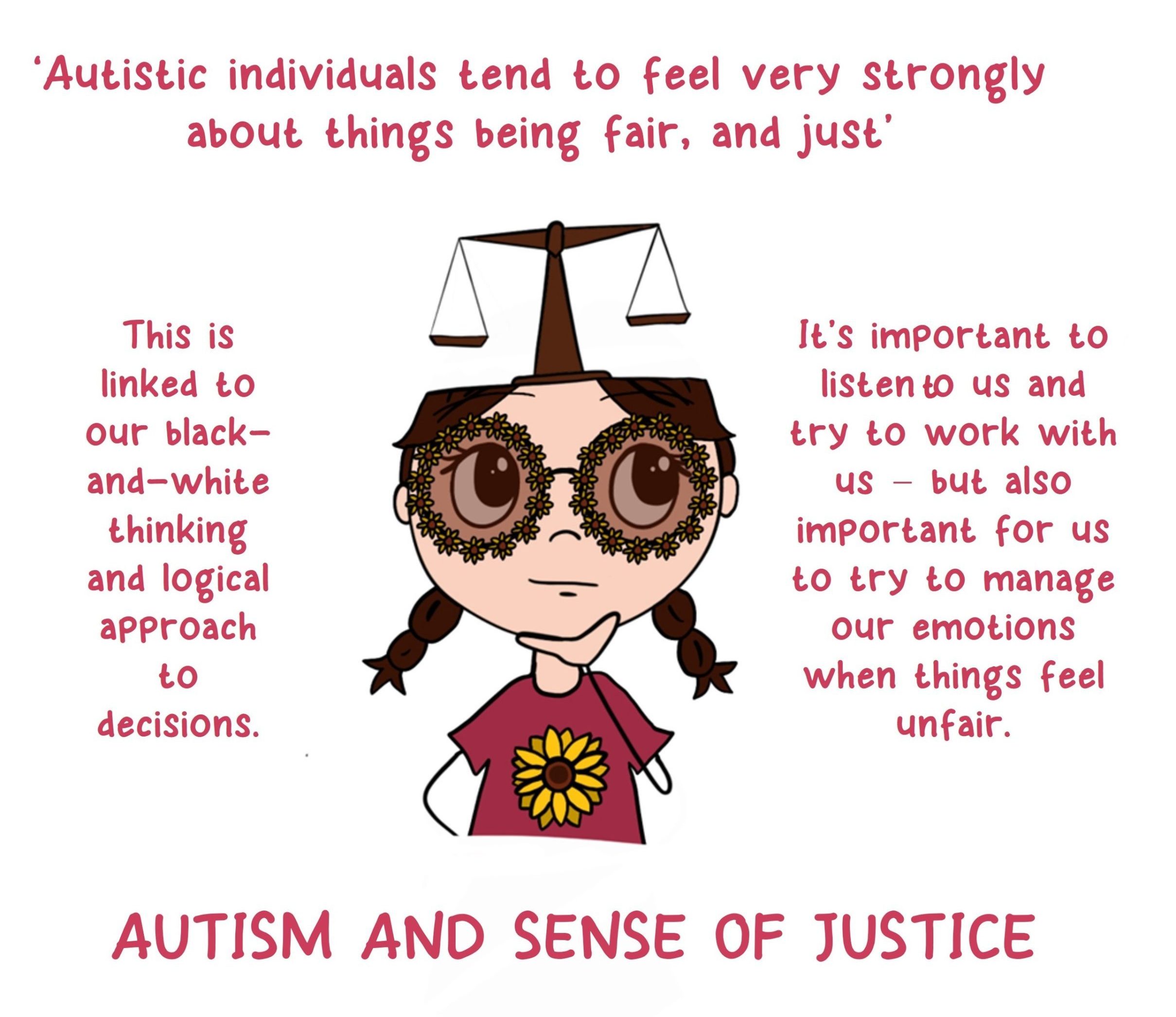Something I feel is really interesting about autistic individuals is our sense of justice. I honestly thought this was something people were more aware of, but more and more I am realising that others do not appreciate how if I believe something is morally wrong or unfair, it becomes extremely, extremely difficult to act or go along with any actions aligned with that thing. Partly related to our ‘black-and-white’, ‘right or wrong’ thinking, autistic people tend to have a very strong sense or moral justice, and that’s what I wanted to talk about today.
To explain further, our world and society is built upon a moral code. From a young age we are taught what is right, wrong, kind, mean, acceptable, and unacceptable. Autistic people, as ‘black-and-white’ thinkers, tend to stick quite rigidly to rules. We get fixed on ideas. And often, the moral code is one of those ideas. It’s why I felt so compelled at school to make sure people who didn’t do their homework ‘received punishment’ (I didn’t want them to be hurt – but I felt it was fair if they lost 5 minutes of breaktime, or lost a credit or ‘house point’), and why, when it comes to my eating disorder, I find it unacceptable if I feel anxious about eating a food I like. ‘Saffron likes this food’ is my logic – so it is not right to be anxious or upset, no matter how much I have to eat of it. It is morally wrong to feel that way. This is sometimes a good thing, because it pushes me to overcome food rules, but it can also be a bad thing, because it makes me feel ashamed and want to punish myself for emotions I maybe can’t control. My sense of justice and right and wrong has also encountered difficulties when I’ve dealt with social and healthcare professionals. Due to the bureaucratic system we live in, and the innate desire in people to enjoy their authority (I could go on about this, but I don’t think this is the right space to do so), I am often left feeling like I am being punished punitively. The feeling of unfairness and the punishment being morally wrong often leads me to develop intense anger, resentment, and to both lose trust in and shut myself away from the people involved.
Research has evidenced, and further explored, these concepts. For example, studies have shown how while many autistic individuals can pass many of the tests historically used to investigate theory of mind (due to their ability to learn and adapt), newer studies have found differences in autistic individuals’ moral judgement. Autistic people have been shown to be less likely to forgive accidental harm, because they stick rigidly to the rules, and have this elevated sense of justice. Another study has shown how autistic individuals apply logic to social decisions, rather than emotions. They ‘see social structures and relationships in a detached way’ and ‘their personal logic for how the social and the moral world may be very formal’. ‘It is even more difficult for them that ordinary people do not always follow the rules in our daily practice’.
So, what do we do about this? I think it’s important to be self aware and perhaps sometimes try to look at yourself and think ‘is this you being overly fixated on the rule? Whether it’s fair or not..will it help to get angry?’ – or even just to be able to tell yourself ‘yes, you are right, but will any of your actions change things?’! There is a horrible but very true saying: ‘life isn’t fair’.
However, more importantly, I think more professionals need to understand this aspect of autism, and try to change how they work in order to develop stronger relationships with autistic individuals. Listen to their views, and try to give autistic individuals more trust. Consider how they might view a punishment or decision, and if it is actually in their best interests to apply it. Flexibility and treating people as individuals, as always, is key.
Research articles:
Dewey, M. (1991). Living with Asperger’s syndrome. In U. Frith (ed.), Autism
Asperger syndrome. Cambridge: Cambridge University Press, pp. 184-206.
Moran JM, Young LL, Saxe R, Lee SM, O’Young D, Mavros PL, Gabrieli JD. Impaired theory of mind for moral judgment in high-functioning autism. Proc Natl Acad Sci U S A. 2011 Feb 15;108(7):2688-92.

Leave a Reply